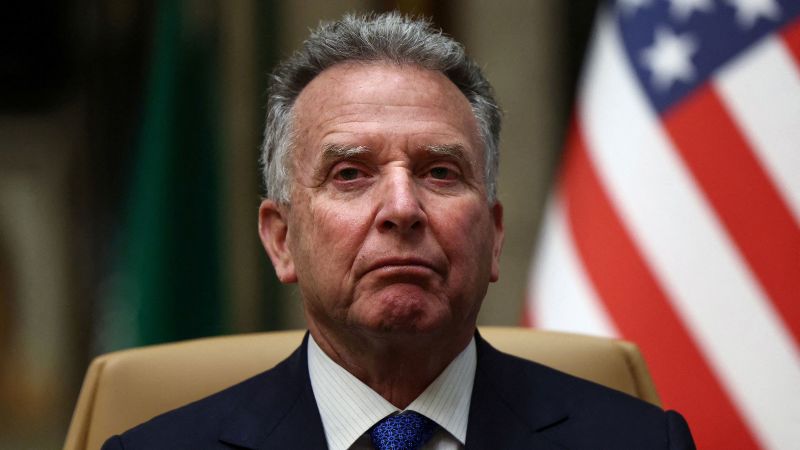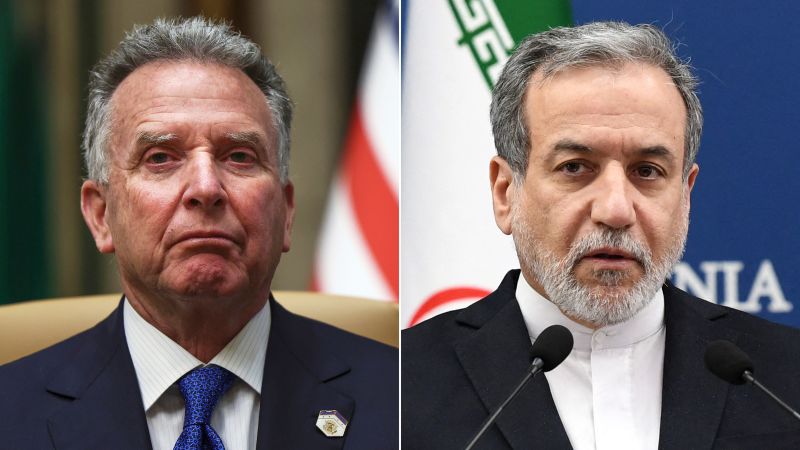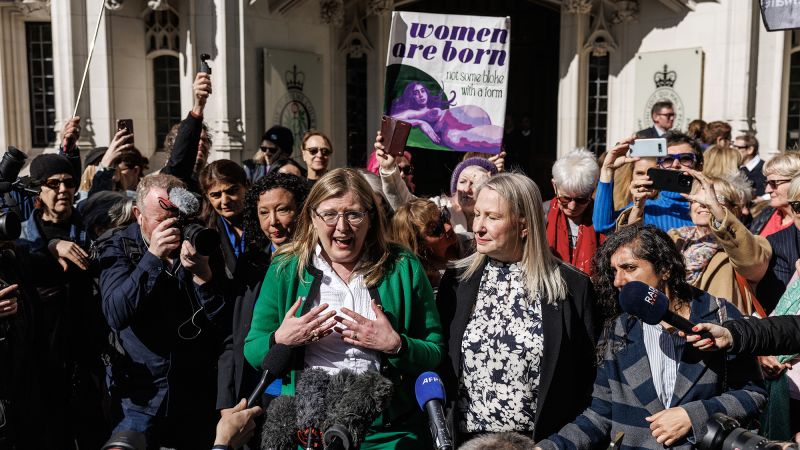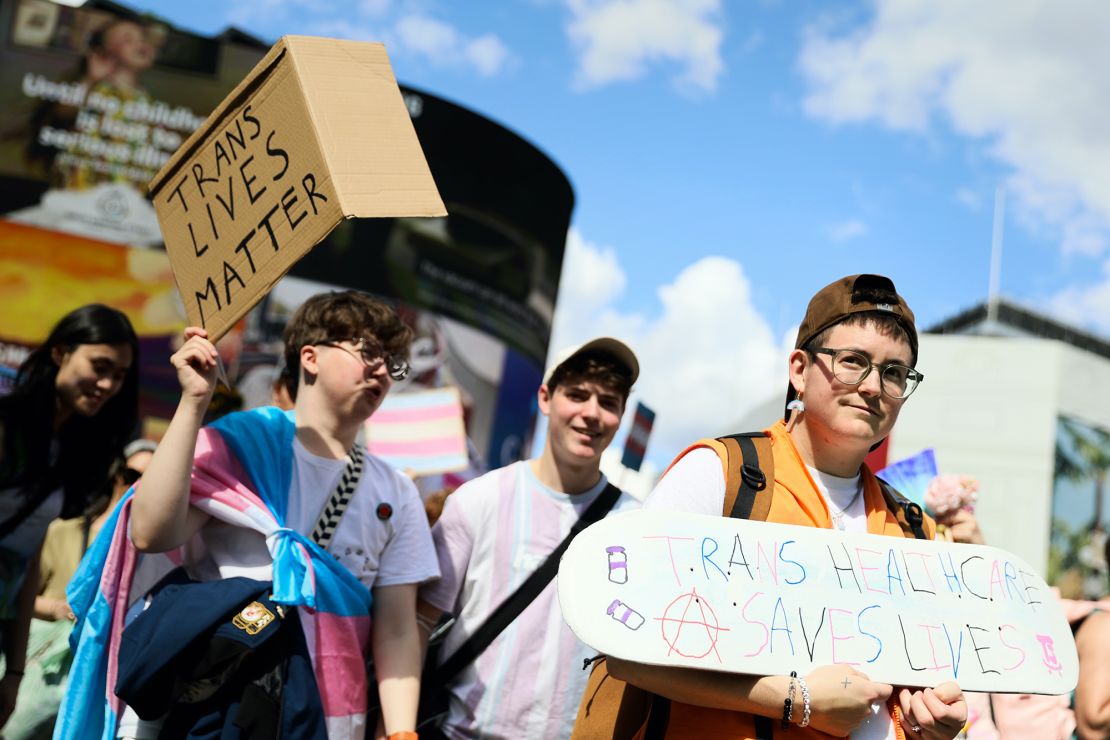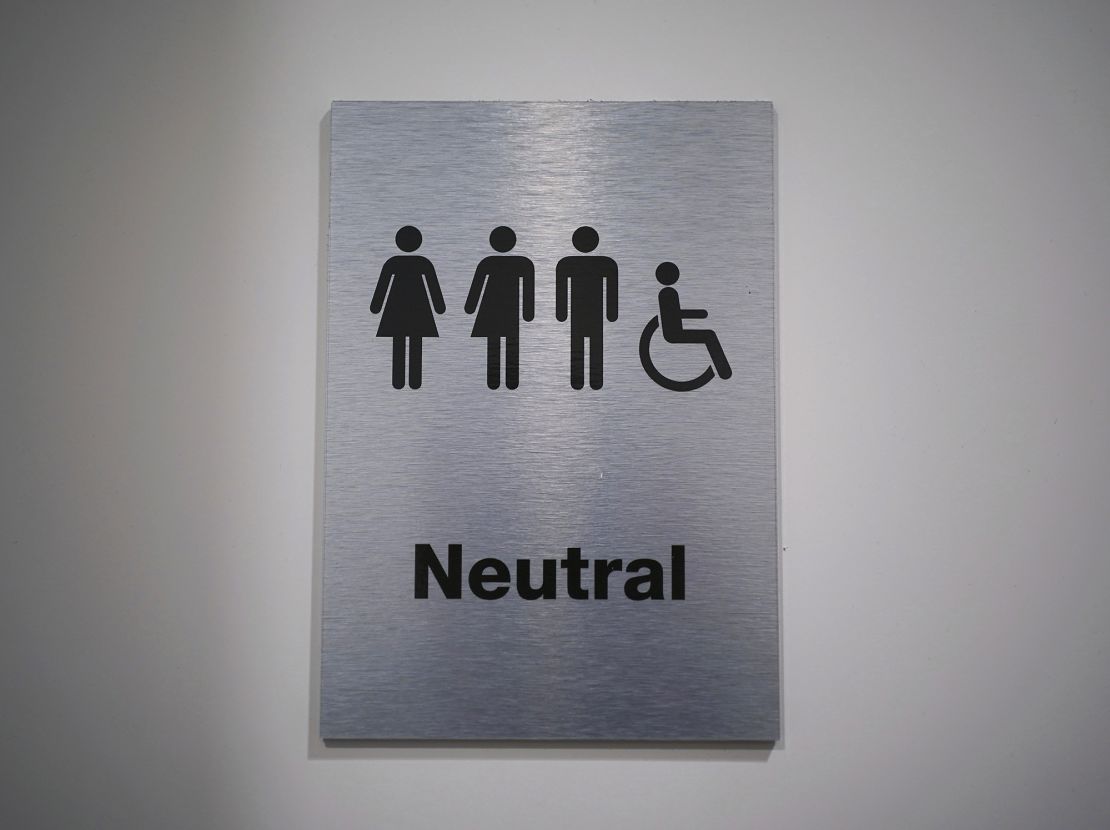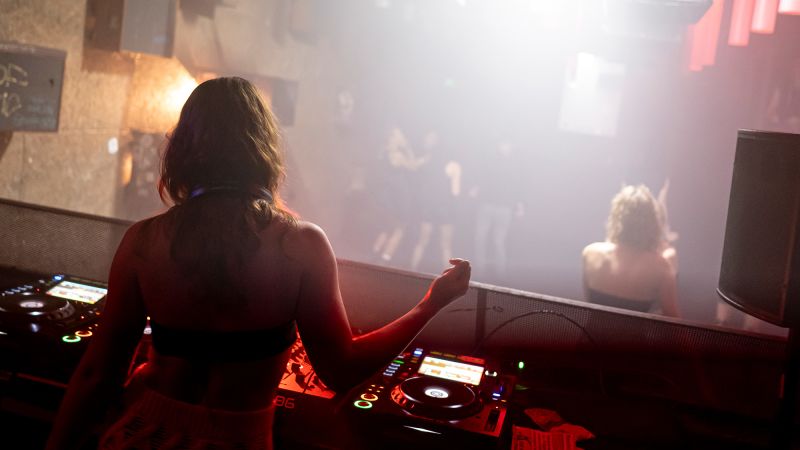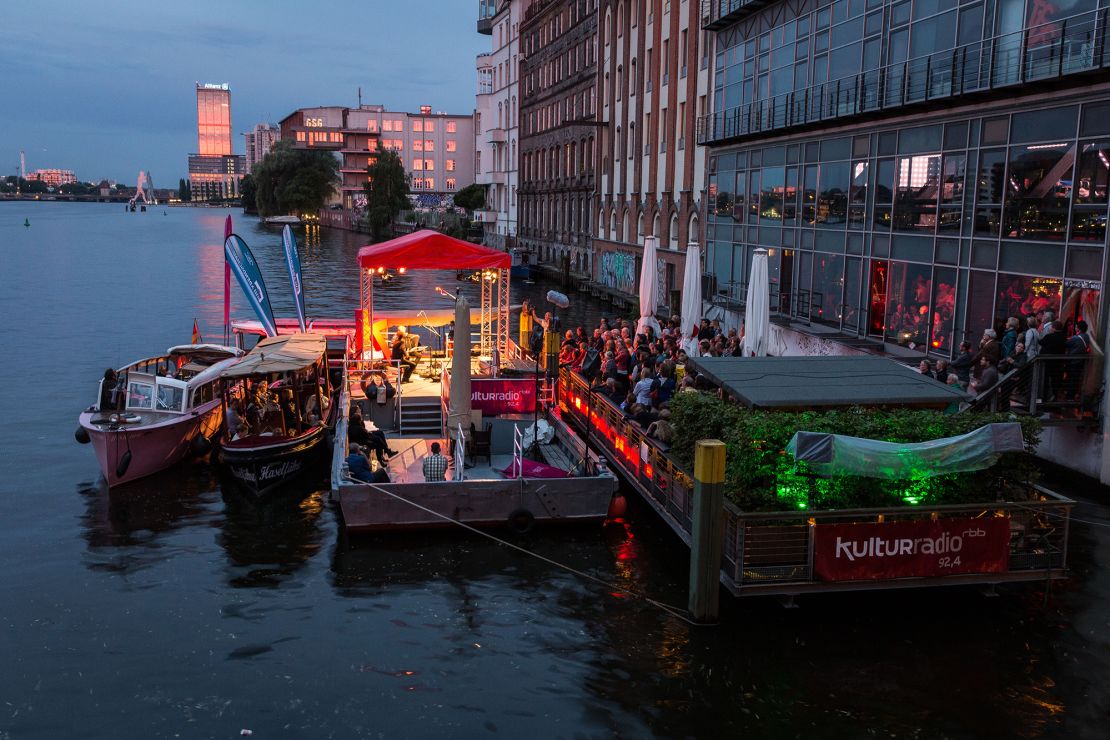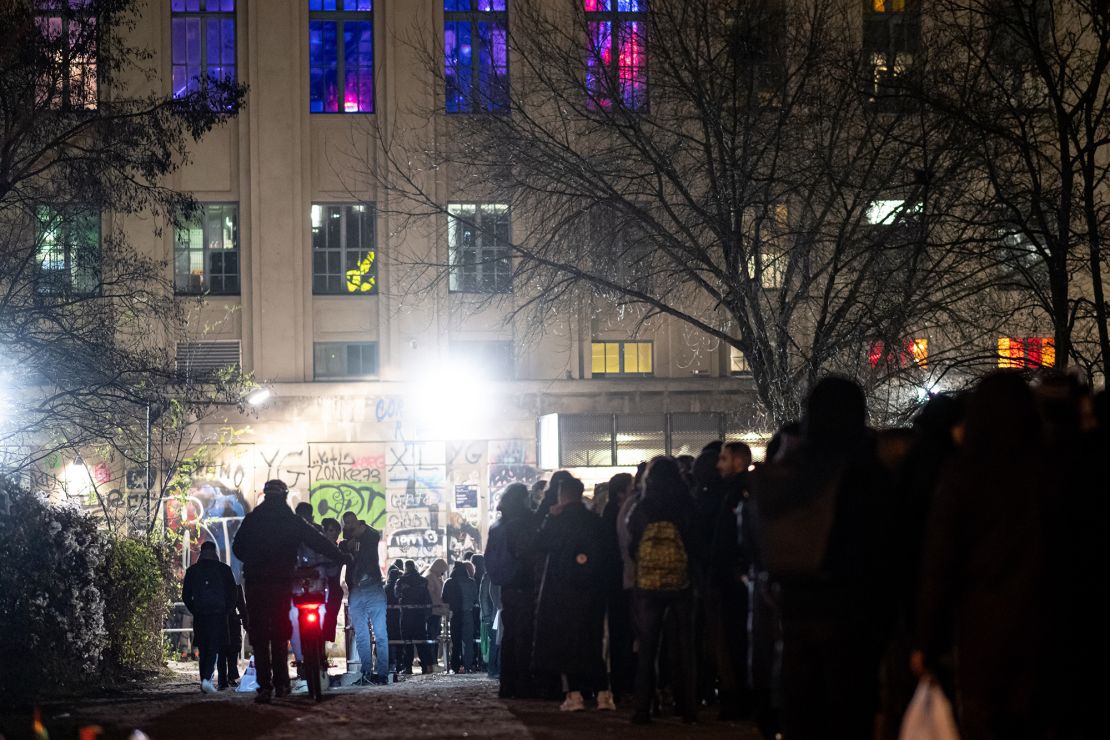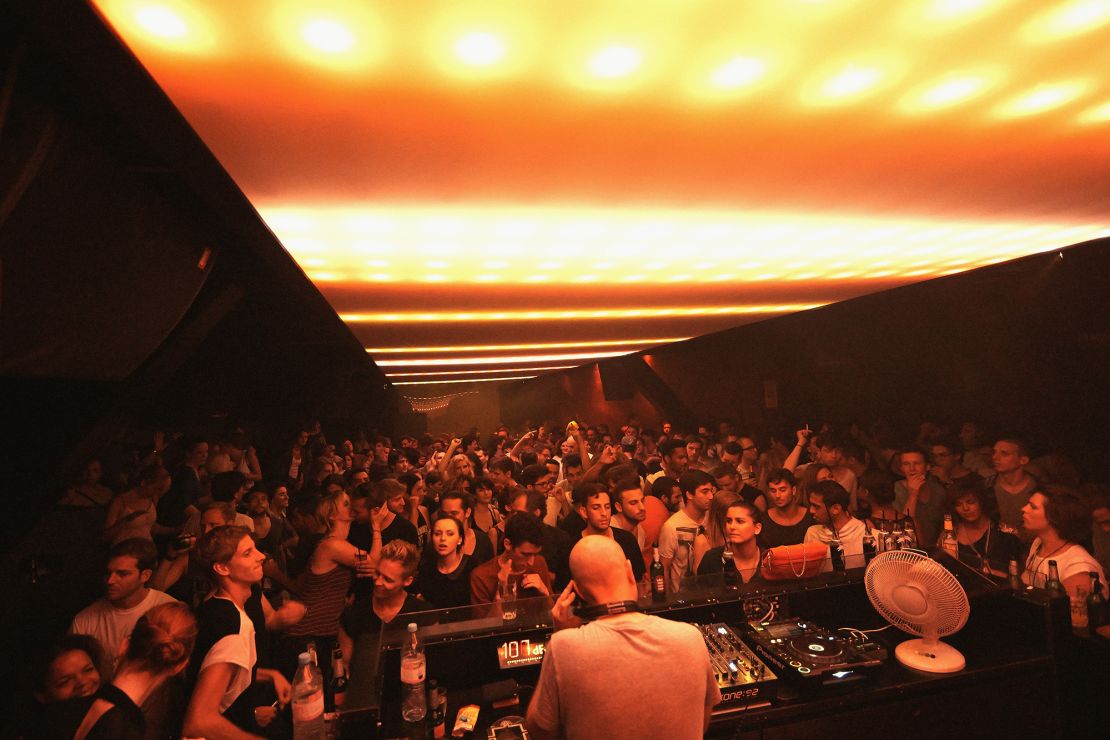CNN
—
Last month a private jet belonging to Middle East envoy Steve Witkoff winged its way from Abu Dhabi to Doha to Moscow and Baku, before finally flying to Florida, where Witkoff briefed President Donald Trump on his meeting with Russian President Vladimir Putin — all within the span of a few days.
It was just another week for Witkoff, whose globetrotting is now taking him well beyond his original job as it becomes increasingly clear that he has what few others, if any, in the administration do: the absolute faith of President Trump.
The pace in recent weeks has not abated. Witkoff met with Ukrainians and Europeans in Paris on Thursday to discuss driving an end to the Ukraine War, before he was scheduled to zip over to Rome for a second round of talks with Iran to pave the way for a possible nuclear deal.
In three short months, Witkoff has become Trump’s defacto point-man on some of the most urgent foreign policy challenges facing the new administration. His expansive remit has at times verged into territory usually reserved for secretaries of state and CIA directors.
For someone who’s never worked in government, that’s raised questions in Washington and abroad over how Trump views the other more traditional and experienced foreign policy hands on his team — and whether Witkoff is truly equipped to operate at such a high level on the world stage.
“Very few people outside the White House inner circle have worked with him. He operates as quite the lone ranger,” said a longtime US official who spoke to CNN on condition of anonymity in order to talk freely. “Doing this shuttle diplomacy without a single expert is definitely unusual. I really can’t explain that. It’s odd and it’s not ideal.”
Though it’s early going, so far results have been mixed. Witkoff has been unable to resurrect the truce in Gaza that fell apart last month. Russia has so far rejected the ceasefire the US called for in Ukraine over a month ago. And this week, the Iranian foreign minister called Witkoff’s shifting position on their nuclear program “contradictory and conflicting.”
On the Ukraine front, frustration is mounting over the lack of progress. Speaking to reporters on Friday from Paris, where he was joined by Witkoff for high-level talks with European and Ukrainian officials, Secretary of State Marco Rubio warned that the US could end its efforts to seek peace.
“If it is not possible to end the war in Ukraine, we need to move on,” Rubio told reporters before departing Paris. “We need to determine very quickly now, and I’m talking about a matter of days, whether or not this is doable.”
Witkoff, a New York real-estate developer whose relationship with Trump stretches back decades, is the closest person to family serving in the president’s second term — leading some sources familiar with their dynamic to compare his role to the one Trump’s son-in-law Jared Kushner had during Trump’s first administration.
Like Kushner, Witkoff sees the president almost daily, texts with Trump’s family members, has walk-in privileges to the Oval Office, and enjoys a longer leash than nearly anyone else in the Trump administration, sources explained. That operational freedom though has at times led to some internal chaos — like when Witkoff books himself for TV interviews, a process that typically runs through the president’s national security team. White House communications director Steven Cheung pushed back saying in a statement that every media booking runs through the White House.

As Witkoff’s responsibilities have expanded — first handling Gaza talks, then adding Russia and now leading on Iran – he has grown to rely on a small team of officials at the White House and has become a regular consumer of US intelligence, sources said.
Witkoff also takes no salary from the US government and pays for travel on his personal plane without reimbursement from the federal government, according to an administration official. Witkoff expects to log more than 1,000 hours this year on his efforts for the Trump administration, the official added.
Witkoff has some of the trappings of a traditional special envoy’s office but in many ways ignores them. At the White House, he keeps his own West Wing office—the one that belonged to Ivanka Trump in the first term—so that he can be closer to Trump.
Meanwhile, about a mile away at the State Department, some of Witkoff’s small but expanding team works out of a space last used by John Kerry when he was President Joe Biden’s climate envoy.
While he initially intended to work out of the State Department, the unexpected calls into the Oval Office that come most afternoons have anchored Witkoff in the White House, sources said.
That at times leaves his team of less than a dozen officials at the State Department operating with little information. They often don’t know Witkoff’s daily schedule – which sources close to him say may be a product of that agenda evolving by the hour. They also sometimes don’t get advance notice of Witkoff’s planned engagements, including with Putin and Iranian Foreign Minister Abbas Araghchi, multiple sources said.
An outsider and deal maker
Witkoff’s close relationship with Trump has given him immense cache when he engages with foreign diplomats.
“We know he is talking for Trump so conversations with him are extremely valuable,” said one foreign diplomat in Washington.
A Middle Eastern official who has worked with Witkoff praised him as a “smart negotiator” and said his go-it-alone approach can result in “efficient and effective execution of deals.”
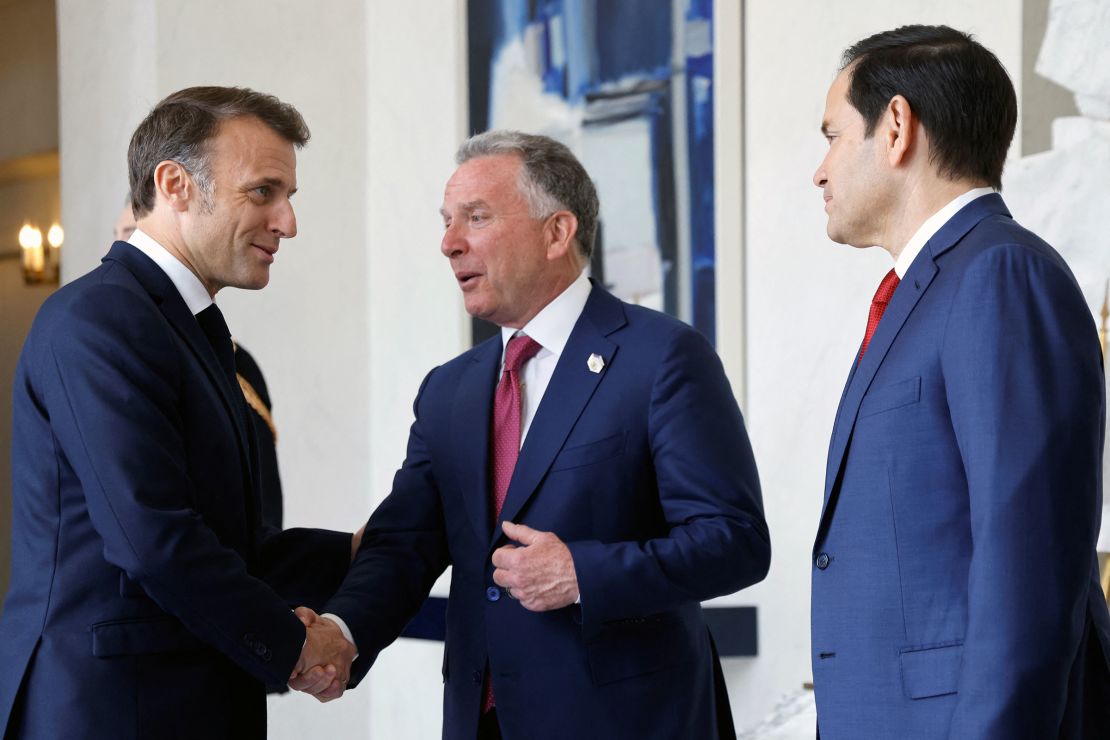
“No doubt he’s on a learning curve, but he is not afraid to learn and very open for considerations and angles he had not previously seen,” the official said.
In a statement to CNN, Rubio, who works closely with Witkoff, offered his robust support.
“From spearheading efforts to bring Americans home to his commitment to restoring peace across global conflicts, Steve has been an incredible leader in the America First movement,” Rubio said. “He has shown tremendous passion and has employed innovative ways to advance our national interests at home and abroad. The American people are better off for the contributions he has already made in just three months as part of this administration.”
Still, questions remain over how much Witkoff will use the team that is being built for him, and how effective he will ultimately be in driving negotiations that produce major deals.
Speaking privately to CNN, a number of career US and European diplomats were skeptical of Witkoff’s ability to deliver final agreements that, whether it’s Gaza, Ukraine or Iran, will inevitably require extensive discussion of complex technical details.
“This is somebody who appears to be launching out on his own with no diplomatic experience,” said one veteran US diplomat who spoke to CNN on condition of anonymity in order to talk candidly. “On the Russian side he is up against very experienced diplomats and operators,” the person said. “The concern is that you have someone who is outmatched by his counterparts and that is not a good place to be.”
Sources close to Witkoff say he is happy to hand off nitty gritty technical negotiations and that he has no interest in trying to own the entire process on any of these fronts.
On Ukraine though, Witkoff has raised concerns among some American and foreign officials with his habit of praising Putin and erring on the Russian leader’s position.
“I think that Mr Witkoff has taken the strategy of the Russian side,” Ukrainian president Volodymyr Zelensky said Thursday. “I think it is very dangerous because he is consciously or unconsciously, I don’t know, disseminating Russian narratives.”
Those points are sometimes repeated by Witkoff behind closed doors in meetings with senior Trump officials, “certainly to the discomfort of some in the room,” the longtime US official said. “Witkoff seems very susceptible to certain Russian narratives, and that’s a real problem.”
Sources close to Witkoff say he is aware of the criticism that he is a novice to diplomacy, but that he also believes that not having the training of career diplomats comes with benefits.
“He is not new to dealing with foreign actors, he has dealt with them throughout his real estate and business career,” said one source close to Witkoff. “What is new is that he is dealing with them for the US government. But it still requires a level of trust to get anything done,” the person said.
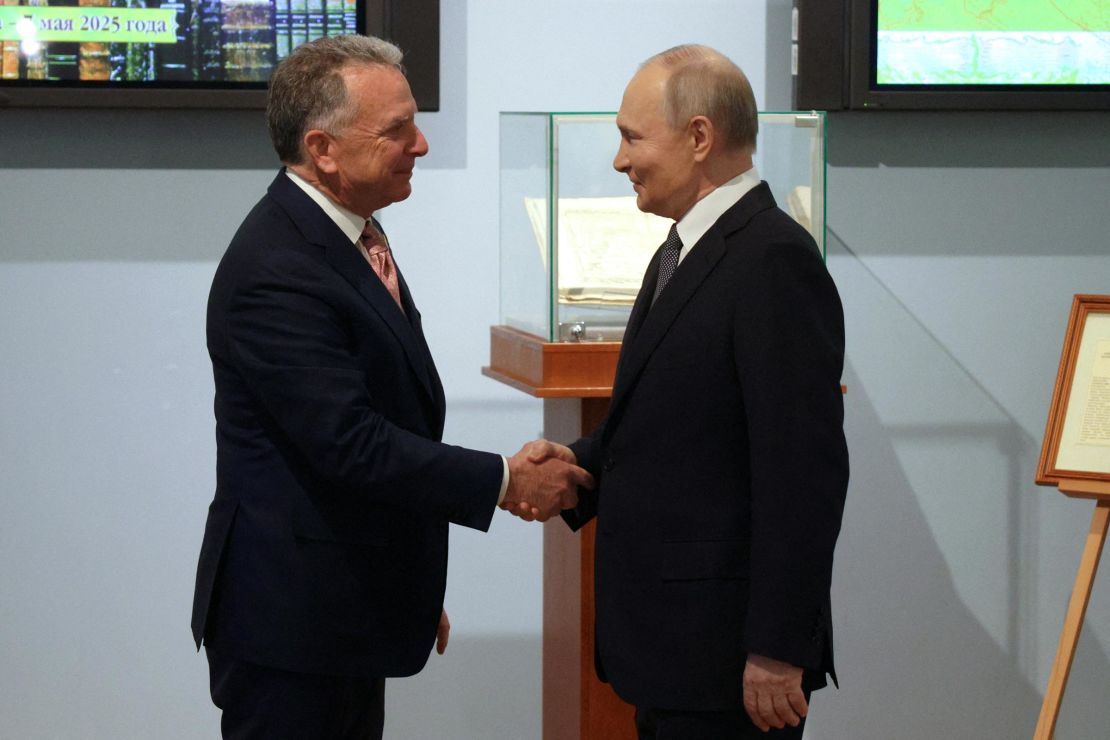
Cheung said that Witkoff doesn’t have “ulterior motives” which has boosted his efforts, and some Trump allies argue an outsider is exactly what is needed in these types of negotiations.
“He’s an outsider, but that’s what makes him such a good deal maker,” said Ohio Republican Sen. Bernie Moreno, who got to know Witkoff and his family closely during Trump’s 2024 presidential campaign. “We need to reject that old mindset with a new outsider’s view on all these things. And that’s exactly what Steve’s doing, and that’s exactly what’s needed.”
Second only to himself, Trump believes Witkoff is the ultimate deal maker. He thinks their shared background in the real estate business as developers makes them similar in their approach to foreign leaders, Trump administration officials and people close to the president told CNN.
That’s in large part how Witkoff landed what has become one of the most crucial and legacy-defining roles of Trump’s second term.
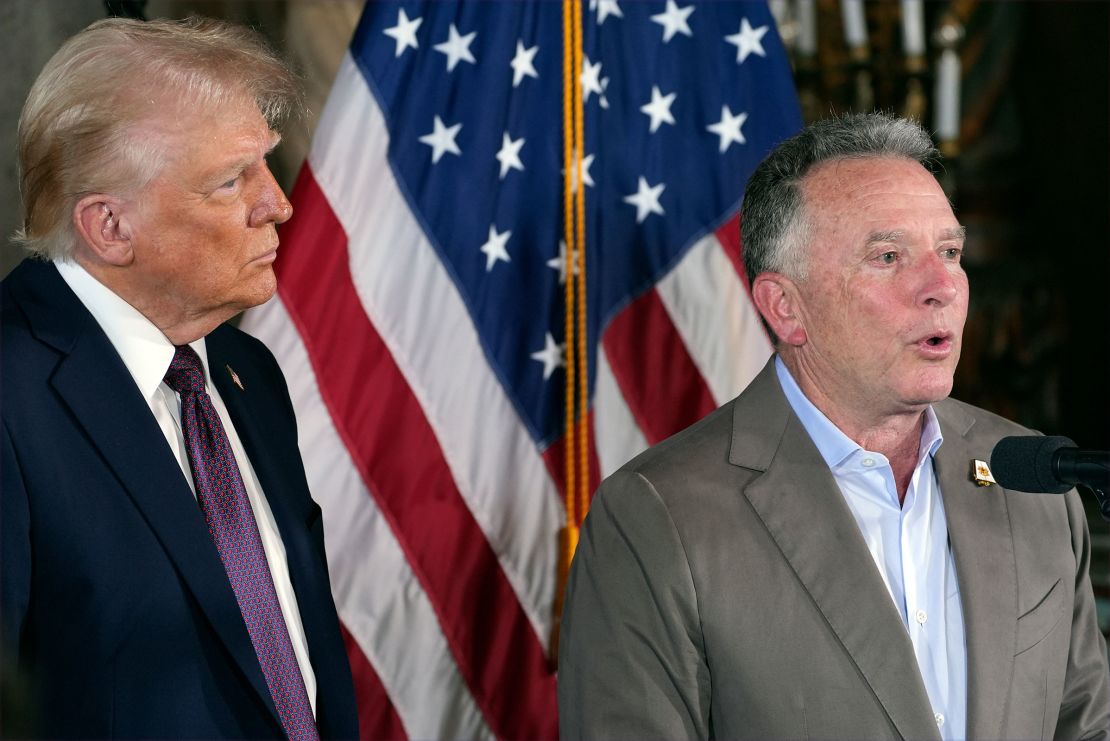
Trump initially gave Witkoff the Middle East portfolio because he wanted to find his friend a meaningful role in his administration – and knew he had connections to Israeli Prime Minister Benjamin Netanyahu and other Middle Eastern officials thanks to his business dealings, sources close to both the president and Witkoff told CNN.
But Trump was so pleased with how Witkoff pushed through the initial ceasefire and hostage agreement — struck in the final days of the Biden administration — that he directly told Witkoff to serve as a chief negotiator for talks between Russia and Ukraine, and now Iran, the sources said.
“Witkoff proved early on that he had the chops to be a dealmaker,” a second Trump administration official said. “He helped reached a breakthrough where others couldn’t. That success led the president to give him more jobs.”
After Trump lost the 2020 election, Witkoff was a constant presence in his inner orbit, even as many former allies abandoned him. During the 2024 campaign, Witkoff grew close to many of Trump’s most senior advisers, including Susie Wiles, Trump’s campaign manager and now White House chief of staff, sources familiar with their relationship said.
“Witkoff doesn’t just have the trust of President Trump. He has the trust of the president’s entire family, and the trust of the president’s closest aides,” a person close to the Trump family told CNN. “Steve is someone who stood by Trump when it was tough to stand by him.”

Donald Trump Jr., who has become close personal friends with Witkoff and a key advocate of his role in his father’s administration, is effusive in his praise for Witkoff.
“Not only is Steve Witkoff one of the most amazing businessmen of this generation, but he’s also one of the most decent human beings you will ever meet,” Trump Jr. told CNN. “When a lot of fake friends ran for the hills after the 2020 election, Steve always stayed loyal to my father and our entire family and that is something we will never forget.”
Added Trump Jr, “No one is better suited to lead peace negotiations in the Middle East and between Russia and Ukraine than he is. His ability to cut deals and succeed in tough negotiations is second to none and America will be better off because of his hard work.”
‘Steve can handle it’
When preparing for his overseas engagements, Witkoff doesn’t ask for a thick briefing book or a series of departmental briefings to be setup. Instead, he relies on his almost daily communications with the president, impromptu meetings, interactions with members of Trump’s National Security Council and his now-regular intelligence briefings as the primary sources of preparation, a source familiar with the matter told CNN.
Witkoff takes two identical notebooks with him everywhere, the source added. One is for general information; the other is for more sensitive information.
Witkoff’s small circle includes his girlfriend, Lauren Olaya, a former professional golfer who joined Wikoff at Trump’s inauguration. Olaya often accompanies him on visits to sensitive engagements, flying with him on his private jet, two sources explained. She also joined Witkoff on his second trip to Moscow, one person said, but does not attend Witkoff’s meetings with foreign leaders and top officials. She does, however, often serve as a sounding board for him, the sources said.
Witkoff initially told people that he would remain in the role for a year, though sources say that he has indicated that he will stay around until he crosses the finish line on deals he has been tasked to clinch.
And while there are no current plans to expand Witkoff’s role, US officials say that it is not out of the realm of possibility – especially as questions arise about who might lead discussions with China.
“Steve can handle it,” Trump and his national security team often joke when discussing a wide range of topics, explained a source familiar with the matter.
This story has been updated with additional developments.
CNN’s Jennifer Hansler and Avery Schmitz contributed to this report.

